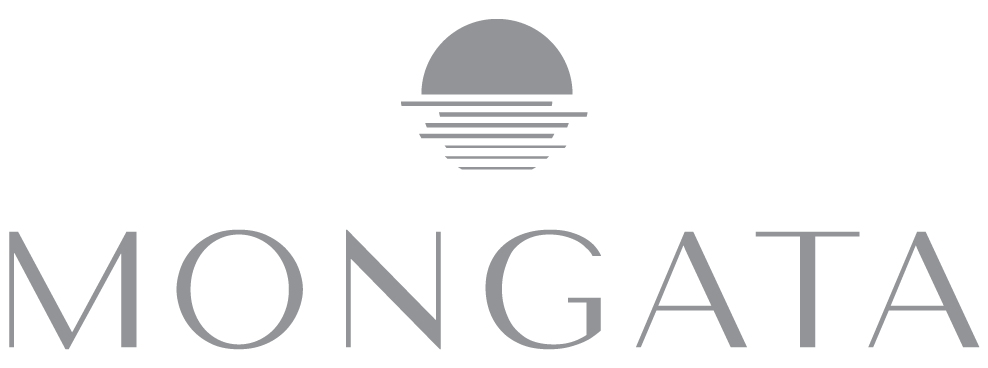Tips and Prompts for Starting a Short Daily Journal Practice
Starting a daily journaling practice is a powerful habit that can transform your life in numerous ways. At Mongata Healing Center in Santa Fe, New Mexico, we are dedicated to guiding you on a journey of self-discovery and self-healing.
Whether you're new to journaling or looking to refine your practice, a good short daily journal practice can offer significant mental and physical health benefits. In this guide, we'll explore the essentials of daily journaling, its importance, and practical tips and prompts to get started.
What is Daily Journaling?
Daily journaling is the act of writing down your thoughts, feelings, and experiences regularly. This practice helps you capture moments, reflect on personal growth, and set intentions. Journaling doesn't have to be time-consuming; even a few minutes a day can make a substantial difference in your overall well-being. It can be done in a variety of formats, such as bullet journaling, stream-of-consciousness writing, or structured journal prompts. The key is consistency and making it a part of your daily routine.
Why is Daily Journaling an Important Practice?
A good short daily journal practice is important for various reasons. It serves as a tool for self-reflection, allowing you to track your personal growth and development over time. Journaling also helps in organizing your thoughts and emotions, making it easier to understand and manage them.
By regularly engaging in this practice, you can enhance your mental clarity, creativity, and problem-solving abilities. Additionally, journaling provides a safe space to express yourself without fear of judgment, fostering a deeper understanding of your inner world.
Mental Health Benefits of Journaling
Stress Relief
One of the most immediate benefits of daily journaling is stress relief. Writing about your thoughts and feelings helps release pent-up emotions and reduces stress levels. This simple act can provide a sense of calm and control, helping you navigate through life's challenges more effectively.
Journaling allows you to express feelings that you might not be comfortable sharing with others, serving as a private and safe outlet for your emotions. Studies have shown that expressive writing can lower your cortisol levels. Keeping this stress hormone in check will help you stay relaxed and promote overall well-being.
Mental Clarity
Daily journaling can significantly improve your mental clarity. By putting your thoughts on paper, you can better understand and organize them. This practice helps in clearing mental clutter, making it easier to focus on your goals and aspirations.
Writing regularly about your experiences and emotions provides a clearer perspective on your life, enabling you to see patterns and make informed decisions. It also helps in identifying and addressing negative thought patterns, leading to improved mental health.
Boosts Creativity and Problem Solving
Engaging in a good short daily journal practice stimulates your brain, boosting creativity and enhancing problem-solving skills. Journaling encourages you to think outside the box and come up with innovative solutions to the issues you face. By writing down your ideas and brainstorming regularly, you can unlock creative potential and approach problems with fresh perspectives. This creative stimulation can extend to other areas of your life, enhancing your ability to think innovatively and solve problems effectively.
Self-Reflection and Gratitude
Journaling is an excellent tool for self-reflection. It allows you to review your experiences, understand your patterns, and learn from them. Additionally, incorporating gratitude journaling into your daily routine can shift your focus toward positive aspects of your life, fostering a sense of appreciation and contentment.
Reflecting on what you are grateful for each day can enhance your overall sense of well-being and promote a positive mindset. This practice of gratitude can help combat negative emotions and increase your overall happiness.
Physical Health Benefits
Mental Health Boosts Physical Health
The connection between mental and physical health is undeniable. A good short daily journal practice can contribute to better physical health by reducing stress and promoting relaxation. When your mind is at ease, your body follows suit, leading to improved overall health.
Stress reduction through journaling can lower blood pressure, improve sleep, and boost your immune system. Regular journaling can also help in managing chronic conditions by providing a therapeutic outlet for stress and anxiety.
Goal Setting and Aspirations
Journaling helps in setting and achieving goals. By regularly writing down your long-term goals and daily aspirations, you create a roadmap for your future. This practice keeps you motivated and accountable, making it more likely that you will achieve your desired outcomes. Tracking your progress in your journal can help you stay focused and committed to your goals. Additionally, reflecting on your goals regularly can help you stay aligned with your values and make necessary adjustments to achieve success.
Long vs. Short Daily Journaling Practices - Is There a Difference?
Both long and short journaling practices have their own benefits. While long journaling sessions allow for deeper exploration of thoughts and feelings, short daily entries are more manageable and consistent. A good short daily journal practice is less intimidating and easier to maintain, making it a practical choice for busy individuals. Short journal entries can be just as impactful as longer ones, as they encourage consistency and regular self-reflection. The key is to find a balance that works for you and to make journaling a habit, regardless of the length of each entry.
15 Prompts for Starting a Daily Journaling Practice
What am I grateful for today?
What are three positive things that happened today?
How did I overcome a challenge today?
What are my goals for tomorrow?
How am I feeling right now?
What is one thing I learned today?
What is a long-term goal I am working towards?
How can I improve my mental health?
What made me smile today?
What are three things I love about myself?
How can I be more mindful?
What are my current thoughts and emotions?
How can I take better care of my physical health?
What am I looking forward to?
How can I practice self-care today?
Increase the Benefits of Daily Journaling with Mongata
Incorporating a daily journal practice into your routine can lead to profound benefits for your mental and physical health. At Mongata Healing Center, we offer a variety of practices to enhance your well-being, including sound baths, healing circles, and Human Design readings and workshops. To learn more about our offerings, browse our full list of services.
Start your journey towards transformation today. Join us at Mongata Healing Center to explore more ways to nurture your body, mind, and spirit. Our community is here to support you in every step of your self-discovery and self-healing journey.
Whether you are looking to deepen your journaling practice or explore other holistic healing methods, Mongata is your partner in achieving a balanced and fulfilling life. By integrating daily journaling with the various offerings at Mongata, you can create a comprehensive approach to personal growth and well-being, ensuring a more harmonious and enriched life.








